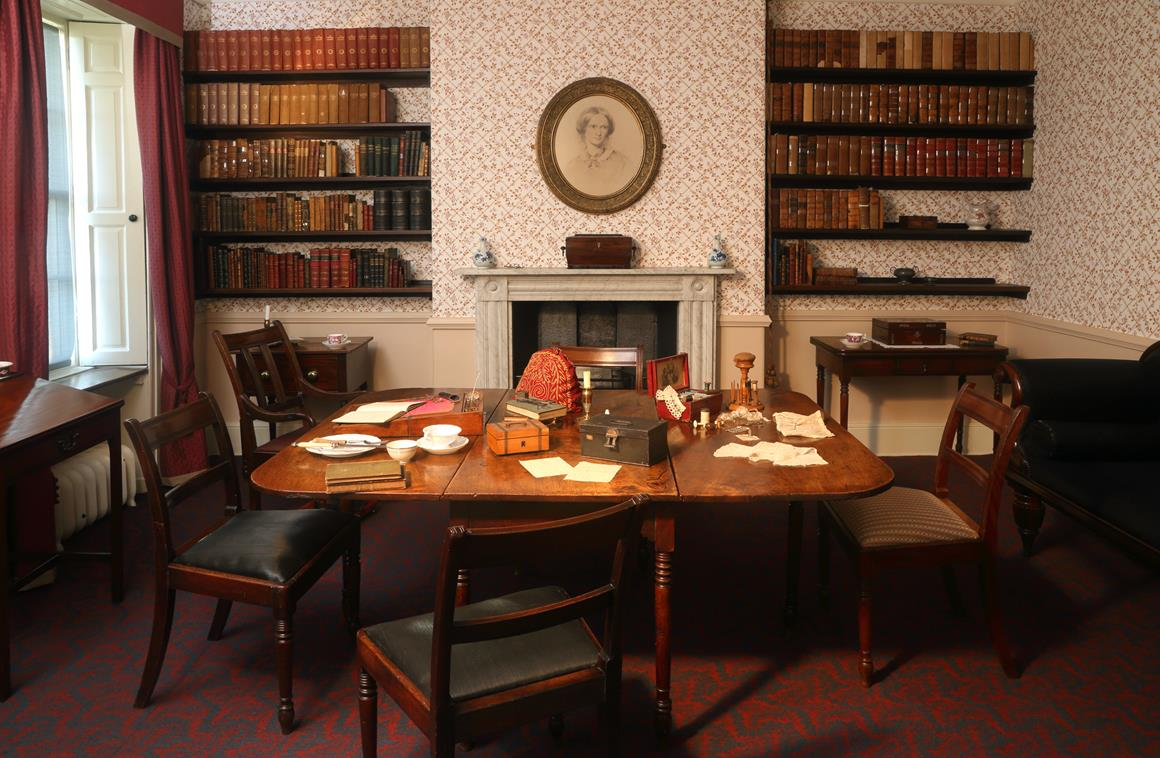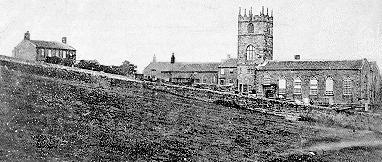SPRING has truly sprung in Haworth and the museum has welcomed lots of visitors over the Easter holiday. Our events and activities continue to be popular with families, and people of all ages enjoyed encountering Tabby - the Brontë family’s servant - and Charlotte’s friend Ellen Nussey during their visit. April is Charlotte’s month and we will be celebrating her 199th birthday at the museum on Tuesday. (April 21) Visitors to the museum on that day will have the opportunity to meet our collections manager, Ann Dinsdale, in the library and get a close-up view of some of Charlotte’s personal possessions. Sessions will be held at 11.30am, 1.30pm and 3.30pm and will be free with admission to the museum. Places will be limited and allocated on a first-come, first-served basis, so be sure not to time your visit too late!
We have a busy weekend in the run up to Charlotte’s birthday.
Tomorrow at 7.30pm, William Atkins, author of The Moor: Life, Landscape, Literature will be giving a talk at West Lane Baptist Centre in Haworth. The book is described as a mixture of history, literary criticism and nature writing, and Haworth Moor has a starring role! The event is part of our Contemporary Arts Programme and tickets cost £6.
On Saturday one of our museum assistants, Charissa Hutchins, is staging an opera concert at the Old School Rooms in Haworth. Charissa and other young professional opera singers will perform some light opera classics before giving a rare presentation of the final act of Bernard Herrmann’s Wuthering Heights. Half of the proceeds will be donated to the Bronte Society and tickets costing £7 (£5 concessions) can be ordered via charissa_bronte@outlook.com. On Sunday you can join Ann Dinsdale for cream tea at historic Ponden Hall, thought by many to be the inspiration for Thrushcross Grange in Wuthering Heights. Ann will be sharing the latest news from the museum in what is sure to be a real treat of an event. More information can be found at ponden-hall.co.uk. And finally, back to Charlotte’s birthday.
This year will mark 199 years since her birth in Thornton, which means that 2016 will be a very significant year for the Brontë Society.
Next year will see the commencement of a five-year programme celebrating the bicentenaries of all the Brontë siblings: Charlotte in 2016; Branwell in 2017; Emily in 2018 and Anne in 2020.
During 2019, the Brontë Society will be celebrating Patrick Brontë and his role in the parish of Haworth. It’s a very busy and exciting time for everyone at the museum and we will be working with some very interesting partners over the next five years, so if you aren’t already on our mailing list, be sure to sign up soon! To launch the countdown to the Charlotte’s bicentenary, we are hosting a celebration at 6pm on Tuesday at her Thornton birthplace, now Emily’s by De Luca Boutique.
This will be a very special occasion and we will be unveiling some of our plans for 2016 and beyond. Visit our website bronte.org.uk for full details and booking information. keighleynews
We have a busy weekend in the run up to Charlotte’s birthday.
Tomorrow at 7.30pm, William Atkins, author of The Moor: Life, Landscape, Literature will be giving a talk at West Lane Baptist Centre in Haworth. The book is described as a mixture of history, literary criticism and nature writing, and Haworth Moor has a starring role! The event is part of our Contemporary Arts Programme and tickets cost £6.
On Saturday one of our museum assistants, Charissa Hutchins, is staging an opera concert at the Old School Rooms in Haworth. Charissa and other young professional opera singers will perform some light opera classics before giving a rare presentation of the final act of Bernard Herrmann’s Wuthering Heights. Half of the proceeds will be donated to the Bronte Society and tickets costing £7 (£5 concessions) can be ordered via charissa_bronte@outlook.com. On Sunday you can join Ann Dinsdale for cream tea at historic Ponden Hall, thought by many to be the inspiration for Thrushcross Grange in Wuthering Heights. Ann will be sharing the latest news from the museum in what is sure to be a real treat of an event. More information can be found at ponden-hall.co.uk. And finally, back to Charlotte’s birthday.
This year will mark 199 years since her birth in Thornton, which means that 2016 will be a very significant year for the Brontë Society.
Next year will see the commencement of a five-year programme celebrating the bicentenaries of all the Brontë siblings: Charlotte in 2016; Branwell in 2017; Emily in 2018 and Anne in 2020.
During 2019, the Brontë Society will be celebrating Patrick Brontë and his role in the parish of Haworth. It’s a very busy and exciting time for everyone at the museum and we will be working with some very interesting partners over the next five years, so if you aren’t already on our mailing list, be sure to sign up soon! To launch the countdown to the Charlotte’s bicentenary, we are hosting a celebration at 6pm on Tuesday at her Thornton birthplace, now Emily’s by De Luca Boutique.
This will be a very special occasion and we will be unveiling some of our plans for 2016 and beyond. Visit our website bronte.org.uk for full details and booking information. keighleynews
.jpg)




